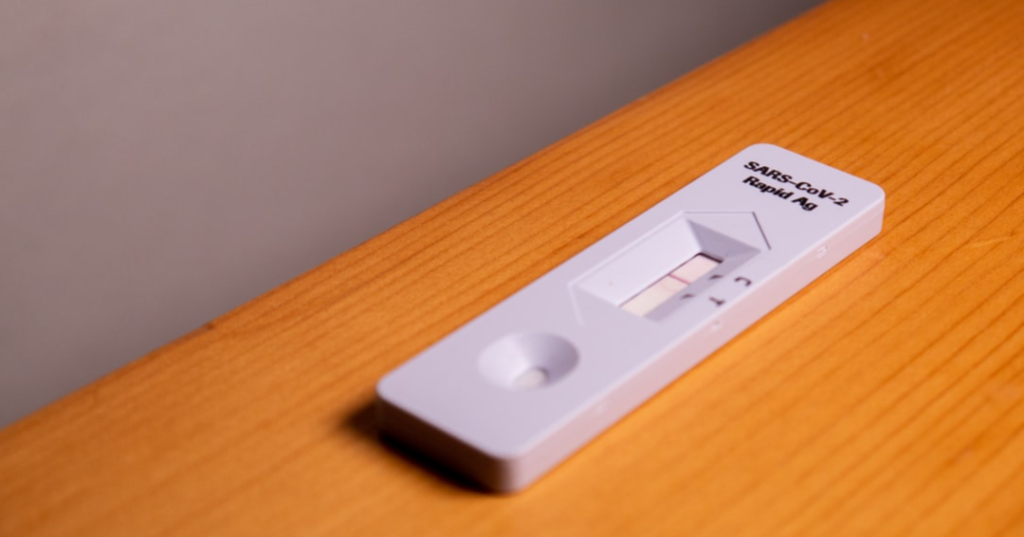COVID: Cases are rising across Spain – so what do you do if you test positive?
The latest rules and recommendations in Spain if you test positive for COVID.

Friday 8th July 2022 – Mike Smith
Source: WHO / Ministerio de Sanidad
Over the past couple of weeks, a “silent wave” of COVID cases has been slowly sweeping across Spain, less severe than the early days of the pandemic but the number of mild cases caused by the two omicron variants BA.4 and BA.5 has been producing a notable increase in hospitalizations across the country, although it remains manageable.
At the end of March, the Spanish Government stopped collecting diagnostic test data for everyone except those over the age of 60 and consequently it has been difficult to determine how this so-called “eighth wave” of infections is affecting the general population, especially since many positive tests are now unreported since self-testing was authorised.
At the end of June, the IA rate for the over 60s stood at 841 per 100,000 people and it has been rising steadily during the first week of July. This rate is similar to that reported in the third wave (899) and the fifth wave (700) but remains well below the peak of the sixth wave where it exceeded 3,000 cases per 100,000 people.
Almost all cases these days are caused by the Omicron variant and in particular the subvariants BA.4 and BA.5 which appear to evade protection from vaccines and previous infections more easily than past subvariants. And they appear to be more contagious. However, health experts maintain that there is no direct relationship between the end of the mandatory use of masks and the current increase in cases as transmission levels were already high before the lifting of this obligation.
The most common symptoms of infection are currently a runny nose, sore throat, headache, persistent cough and fatigue. However, they don’t seem to be causing more serious illness that the previous variants and vaccination seems to be providing a high level of protection against both serious illness and death. At the moment, the case load is still manageable by the national health service and the Spanish government isn’t planning to offer a fourth vaccine jab to the elderly until after the summer, when it is thought more effective vaccines which target these two sub-variants will have been approved.
So, what are the current rules and recommendations if you test positive for COVID?
Firstly, if you are asymptomatic (you test positive for COVID but don’t show any symptoms) then you no longer need to isolate and you are not required to quarantine at home. This requirement was lifted by the Spanish Government at the end of March 2022. However, it is still recommended to stay at home and rest; if you do decide to go out, you should wear a mask at all times and keep social contact to a minimum for at least a week. Remember that you will be highly contagious in the first few days of the illness.
The same applies if you have mild COVID symptoms; it is recommended to stay at home and rest, and if you do go out, wear at mask at all times. Incidentally, the Spanish Government recommends using the FFP2 masks rather than the generic surgical face masks as they are more effective in preventing the spread of infection.
In both asymptomatic and mild cases, you can still go to work so long as you wear the appropriate face mask, avoid contact with vulnerable people and enclosed spaces with litle ventilation. The recommendation, however, is to work from home (WFH) if you are able to do so or take sick leave. You can also go out to events such as festivals and concerts but, since you need to limit contact with others, this is not recommended and you should avoid these for at least a week after testing positive.
If you have serious COVID symptoms, you must enter a seven-day quarantine period, avoiding social contact.
In all cases, you don’t need to inform the health authorities if you have COVID as they are not counting all cases anymore. However, you might want to contact your doctor if you need sick leave from work.
Finally, if you come into contact with someone who has COVID, you don’t need to take a test or self-isolate but you should limit social interactions and consider wearing a mask as those few days after exposure to an infected person are those in which you are the most contagious.




